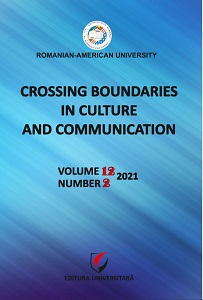Motivation in the Acquisition of Romanian as a Foreign Language
Motivation in the Acquisition of Romanian as a Foreign Language
Author(s): Ana-Mihaela IstrateSubject(s): Language and Literature Studies, Education, Foreign languages learning, Theoretical Linguistics, Communication studies, Comparative Linguistics, Theory of Communication, Adult Education, Higher Education , Philology
Published by: Editura Pro Universitaria
Keywords: Computer Mediated Communication; Romanian as a Foreign Language; linguistic processes; social processes;
Summary/Abstract: The acquisition of any foreign language involves on the one hand the accumulation of vocabulary, grammatical structures, and pronunciation, all these three aspects being sometimes influenced by the native language, which can hamper or enhance the learning process of the new language. On the other hand, there is a social process, that is closely related to the cultural aspects. For example, how different the languages are, if they belong to the same family of languages, as Romanian is a member of the family of Romanic languages, or they belong to different families of languages, if from a religious perspective the countries are at different poles, can help or negatively affect the process of acquisition. Because, at the end of the day, the whole process of learning a language is to help individuals function effectively in a new environment, to be able to study, work, socialize, make friends, overall to be able to become part of a new country and culture emotionally and socially. Sometimes these social and cultural aspects are more difficult to achieve. The purpose of the study is to highlight the most important theoretical models that specialists developed, to talk about the linguistic and social processes involved in learning foreign language. During the second part of the study we will highlight the most important symptoms of culture shock that international students experience after relocating to Romania, as well as the most important aspects that could be considered in order to avoid culture shock, while learning Romanian as a foreign language.
Journal: Crossing Boundaries in Culture and Communication
- Issue Year: 12/2021
- Issue No: 2
- Page Range: 67-76
- Page Count: 10
- Language: English

